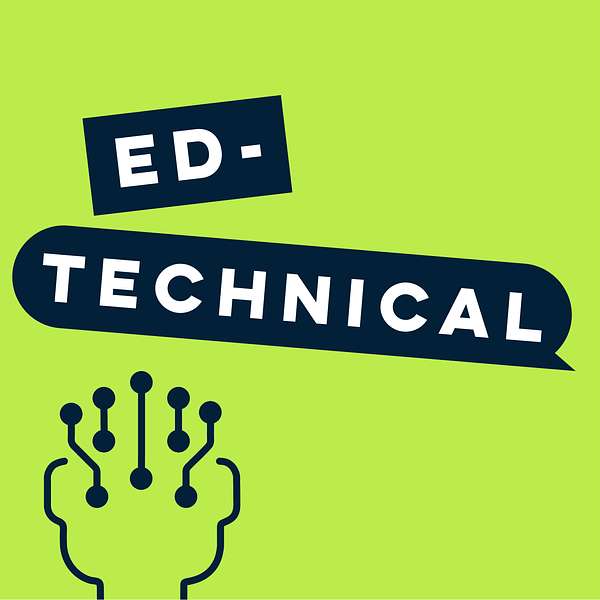
Ed-Technical
Join two former teachers - Libby Hills from the Jacobs Foundation and AI researcher Owen Henkel - for the Ed-Technical podcast series about AI in education. Each episode, Libby and Owen will ask experts to help educators sift the useful insights from the AI hype. They’ll be asking questions like - how does this actually help students and teachers? What do we actually know about this technology, and what’s just speculation? And (importantly!) when we say AI, what are we actually talking about?
Ed-Technical
Season 2 : Three decades of AI in education: assessment to classroom collaboration
This season Libby Hills from the Jacobs Foundation and AI researcher Owen Henkel continue to speak with leading researchers, practitioners and educators on the Ed-Technical podcast series about the cutting edge of AI in education. They will break down complex AI concepts into non-technical insights to better understand what the research says and help educators sift the useful insights from the AI hype.
In the first episode of Season 2, Libby and Owen speak with Peter Foltz about his work at the intersection of cognitive science, AI, and education over the past few decades. Peter discusses his experience building an automated essay scoring system in the late 1990s, which provided students with immediate, formative feedback on their writing. Peter reflects on the potential of large language models to enhance these systems by offering more substantive feedback to help students become better thinkers, not just better writers.
They then discuss the challenges and opportunities of using speech-to-text AI in educational settings. Peter’s team uses AI to analyze student conversations during group work, providing insights into collaboration, respect, and equity within teams that is fed back to the students to reward positive contributions. Despite the technical difficulties of accurately capturing audio in noisy classrooms, Peter highlights the potential of these tools to support teachers in assessing and fostering effective teamwork among students. They also touch on the importance of co-designing these technologies with teachers, students, and parents to ensure their appropriate and acceptable use in the classroom.
Guest and resources
- Peter’s personal webpage, and google scholar page
- NSF Institute for Student-AI Teaming
- Overview of student collaboration tool
Join us on social media:
- BOLD (@BOLD_insights), Libby Hills (@Libbylhhills) and Owen Henkel (@owen_henkel)
- Listen to all episodes of Ed-Technical here: https://bold.expert/ed-technical
- Subscribe to BOLD’s newsletter: https://bold.expert/newsletter
- Stay up to date with all the latest research on child development and learning: https://bold.expert
Credits: Sarah Myles for production support; Josie Hills for graphic design; Anabel Altenburg for content production.